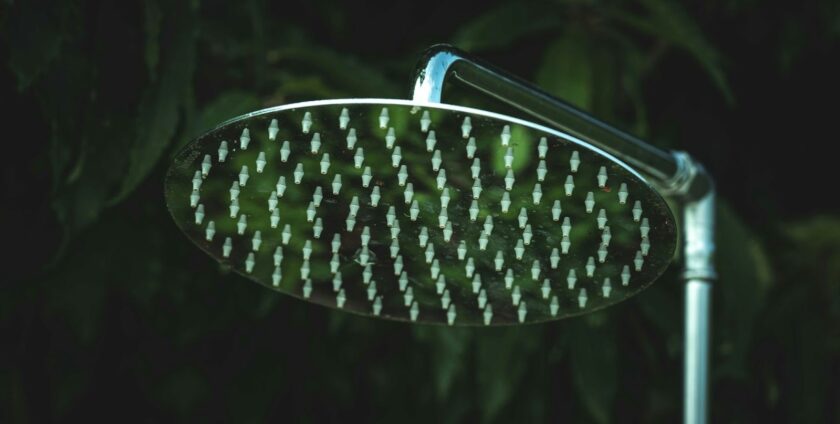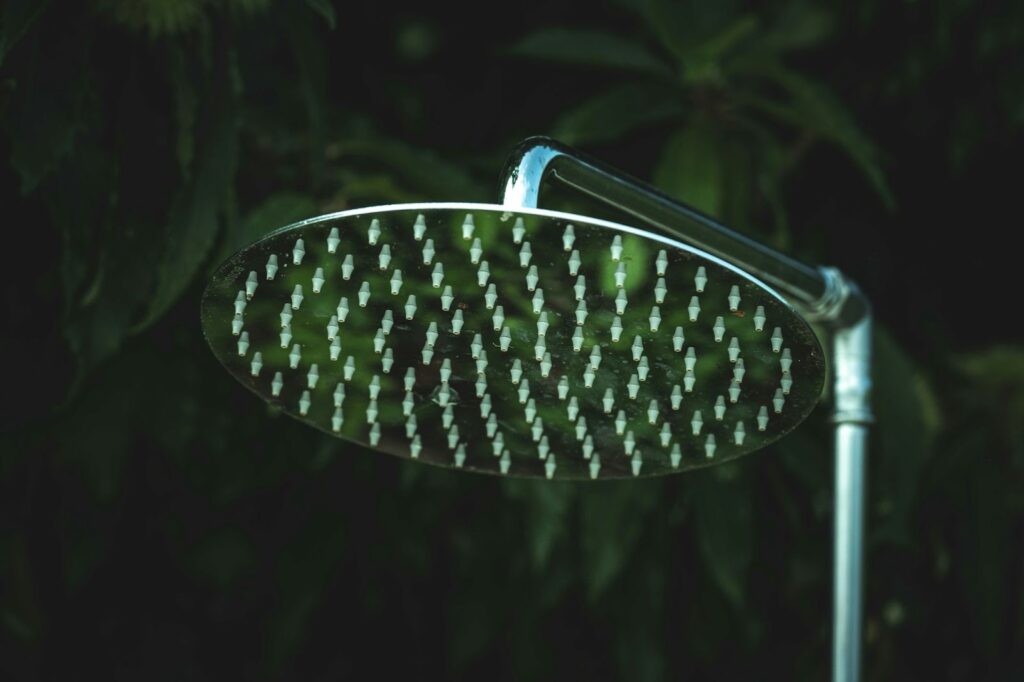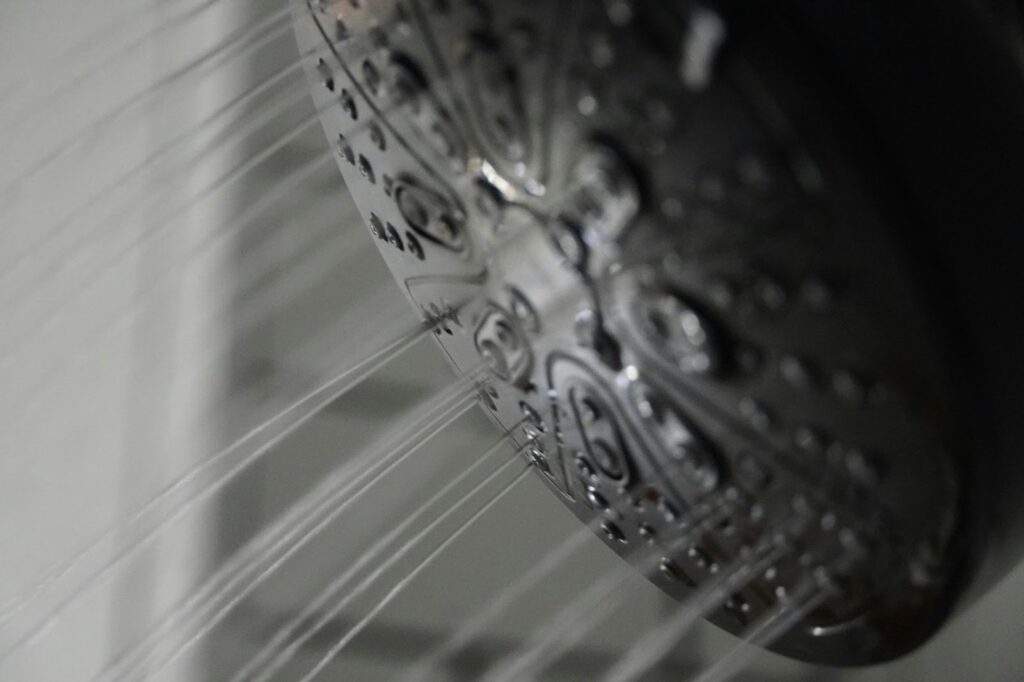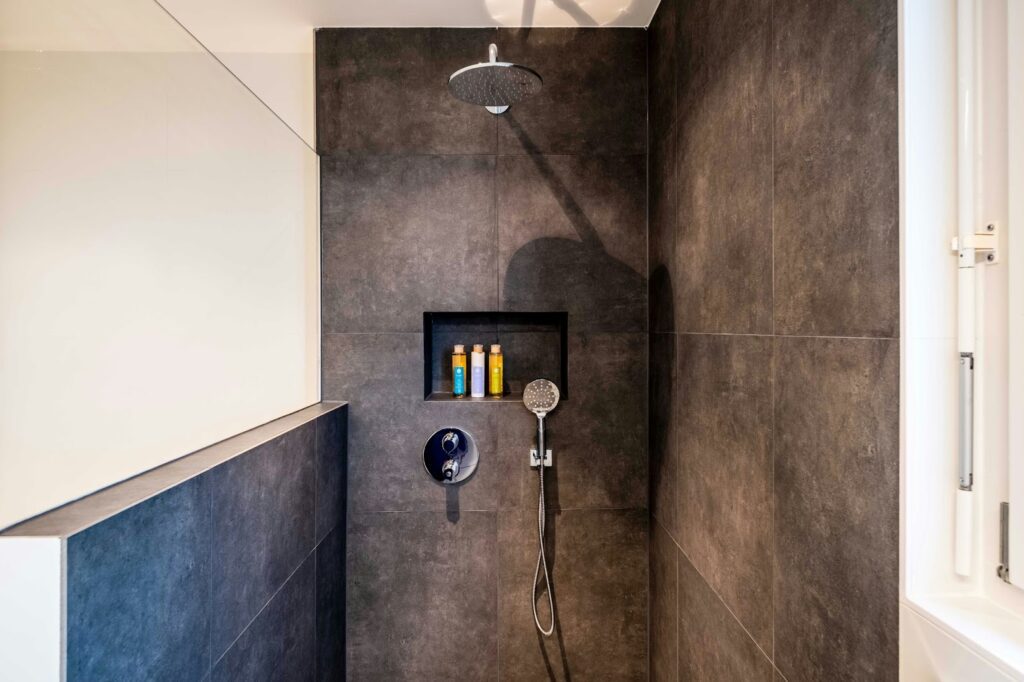
Few home upgrades offer a more immediate impact on comfort than installing a new shower.
Among modern options, the electric shower has become one of the most popular choices for Irish homeowners looking to combine energy efficiency, convenience, and year-round hot water supply – without relying on the immersion heater or central boiler.
But while electric showers promise instant hot water and easy temperature control, they also come with specific electrical and plumbing requirements that demand professional installation.
In this guide, we’ll explain how electric showers work, what regulations apply in Ireland, and why a safe installation should never be a DIY task.
How Electric Showers Work

An electric shower unit heats water on demand by passing cold mains water over a powerful heating element located inside the shower unit. This process is similar to how an electric kettle works – water enters the unit cold and exits hot within seconds.
Here’s what happens step by step:
- Cold water supply – the unit is connected directly to the mains cold-water line, ensuring consistent pressure.
- Activation – when the shower is turned on, water flow triggers the internal pressure switch, activating the heating element.
- Heating process – the element heats the water as it flows through the unit — so there’s no need for stored hot water.
- Temperature control – the shower model uses either a manual dial or thermostatic control to maintain a steady temperature even if household demand changes elsewhere (e.g., flushing a toilet).
- Safety features – modern electric showers include thermal cut-out switches and pressure sensors to prevent overheating or dry firing (heating without water flow).
Because they heat only what’s needed, electric showers can be more energy-efficient than traditional systems, especially in households where showers are used at different times of day.
At the same time, if your electric shower stops working, you can always call a professional to check it out or change it with a new unit.
Are They Worth the Investment?
Source: Unsplash
Electric showers can be a smart addition to Irish homes, especially where energy efficiency and flexibility are priorities.
Unlike mixer or power showers that rely on a hot water cylinder or combi boiler, electric showers heat water only when needed, reducing waste and providing consistent hot water – even when the immersion is off.
Key advantages include:
- Instant hot water – ideal for homes without central heating or during off-peak hours.
- Energy-efficient operation – no stored hot water means you’re not heating more than you use.
- Independent of immersion heater or boiler – perfect as a secondary bathroom shower or for busy households with high demand.
- Low maintenance – with fewer moving parts, electric showers generally require less servicing.
As you can see, there are a lot of advantages to these types of showers.
Potential downsides include:
- Lower flow rates – since they rely solely on mains pressure and internal heating, electric showers can deliver lower flow compared to power showers.
- Electrical demand – higher-rated units (9.5–10.5 kW) need robust wiring and protection in accordance with I.S. 10101:2020 – often requiring a new dedicated circuit.
- Professional installation cost – installation must be carried out by a Registered Electrical Contractor (REC) and, ideally, a qualified plumber, increasing upfront costs.
Overall, electric showers are most worthwhile in homes that lack an efficient hot water system or where independence from the main boiler is desirable – for instance, in rented properties, extensions, or guest bathrooms. For large households with high simultaneous water use, however, a thermostatic mixer or pumped system may offer a better experience.
Choosing the Right Shower Type for Your Bathroom Remodel
Before installing a new electric shower, it’s worth comparing the main shower types available in Ireland.
You can see the pros of the different types listed in the table below.
| Shower Type | Water Source | Heating Method | Ideal For | Notes |
| Electric Shower | Cold mains | Built-in heating element | Homes without reliable hot water systems | Instant hot water, but limited flow |
| Mixer Shower | Hot + cold supply | Uses existing boiler | Homes with combi or gravity-fed systems | Consistent pressure if thermostatic |
| Power Shower | Hot + cold tank-fed | Booster pump | Low-pressure systems | Requires stored hot water; higher energy use |
| Digital/Smart Shower | Varies | Controlled via processor unit | Modern bathrooms | Programmable temperature and flow |
When shopping for a new unit, pay attention to a few key features that affect both performance and safety.
These include:
- Power rating (kW) – this tells you how powerful the shower is. Higher ratings heat water faster and provide a stronger flow, but they also require more electrical power. For most Irish homes, an 8.5 kW unit offers a good balance between comfort and efficiency.
- Thermostatic control – keeps the water temperature steady, even if someone turns on a tap or flushes a toilet elsewhere in the house. It’s especially useful for families and households with varying water pressure.
- Eco settings – some models include an eco or low-flow mode that reduces water use without compromising the shower experience – a simple way to save on energy bills.
- Efficiency labels – check for EU EcoDesign and Water Label certifications to ensure the shower meets recognised water and energy-saving standards.
Choosing a model with these features will make your shower safer, more efficient, and more comfortable to use – all while complying with Irish installation and safety regulations.
How to Install an Electric Shower

Installing an electric shower involves both plumbing and electrical work, so it’s not as simple as replacing an old unit. Because the unit combines water and electricity, every step must be handled carefully and in full compliance with I.S. 10101:2020 – National Rules for Electrical Installations.
Below is a general overview of the process, so you know what to expect when hiring a qualified professional.
1. Assessing your home’s setup
A Registered Electrical Contractor (REC) will first check whether your home’s wiring and consumer unit can safely support the shower’s power rating. Most electric showers require a dedicated circuit, protected by an RCD (Residual Current Device) and a separate MCB (Miniature Circuit Breaker).
At the same time, a plumber ensures that there’s a suitable cold mains water feed with adequate pressure and flow rate.
2. Mounting the shower unit
Once the electrical and plumbing points are confirmed, the installer fixes the shower unit securely to the wall. The position is chosen to allow comfortable access to the controls and a safe distance from other water outlets or fittings.
3. Connecting the water supply
A pipe is connected from the cold-water mains to the shower unit, usually through the wall or ceiling.
All joints are tested for leaks before the electrical connection is made.
4. Wiring the unit
The electrician runs a suitably sized cable from the consumer unit to the shower’s isolator switch and then to the shower unit.
The isolator switch – commonly a pull cord or wall switch – lets you cut power to the shower for safety and maintenance.
5. Testing and certification
Once everything is connected, the installer performs electrical safety tests, verifies earthing, and ensures the RCD protection works correctly. A completion certificate should then be issued, confirming that the installation complies with national standards.
In Ireland, it’s illegal for anyone other than a Registered Electrical Contractor to carry out electrical work in a bathroom. Water and electricity are a dangerous combination, and improper installation can lead to electric shock, fire, or property damage.
For this reason, always check that your installer appears on the Safe Electric Ireland register and provides certification after completing the work.
What Regulations You Need to Keep in Mind
Electric showers are among the most strictly regulated home installations in Ireland because they combine water and electricity. To ensure both safety and compliance, several official standards and authorities apply.
A compliant electric shower installation in Ireland must:
- Be completed by a Safe Electric–registered contractor.
- Follow the I.S. 10101:2020 wiring rules.
- Include RCD and MCB protection.
- Be tested, certified, and documented.
Hiring an unregistered installer or skipping certification not only creates a safety risk but may also invalidate your home insurance if electrical faults cause damage.
How Much Does an Electric Shower Installation Cost in Ireland?
The total cost of installing an electric shower in Ireland depends on several factors, including the type of shower unit, electrical setup, and plumbing requirements.
The total price is affected by:
- New vs. replacement installation – replacing an old electric shower is usually quicker and cheaper than fitting one from scratch.
- Power rating – higher kW models (9.5–10.5 kW) often need thicker cabling and larger circuit protection, adding to the cost.
- Consumer unit capacity – if your fuse board doesn’t have space for a dedicated circuit, it may need to be upgraded.
- Bathroom layout – longer cable runs or concealed pipework can increase labour time.
- Brand and quality – premium models tend to cost more but offer better performance and reliability.
Always make sure your installer issues a Safe Electric Ireland Completion Certificate after finishing the work. This document confirms that the installation complies with the standard and protects your home insurance in case of electrical faults or fire.
The Risks of Installing An Electric Shower Yourself
Installing an electric shower might look straightforward, but it’s one of the most dangerous DIY jobs you can try. Electric showers use both high-voltage electricity and running water, which makes professional installation essential for safety and compliance with Irish law.
Here’s why you should never install an electric shower yourself:
- Risk of electric shock or fire – incorrect wiring, poor earthing, or using cables that are too thin can cause serious electrical faults. Electric showers operate at a high current (usually 7.5–10.5 kW), so they must be on a dedicated circuit with RCD protection and correctly sized cables.
- Violation of Irish electrical regulations – I.S. 10101:2020 – National Rules for Electrical Installations states that I.S. 10101:2020 – National Rules for Electrical Installations, only Registered Electrical Contractors (RECs) are legally permitted to carry out electrical work in bathrooms. Any unregistered installation is considered illegal and unsafe, and may result in fines or enforcement action from Safe Electric Ireland.
- Loss of home insurance coverage – if an electrical fault or fire occurs and the work wasn’t certified by a registered professional, your insurer can refuse to pay out. A Safe Electric Completion Certificate is the official proof that your installation meets national safety standards.
- Voided manufacturer warranty – most brands require installation by a qualified electrician to keep your warranty valid. DIY installation usually voids both parts and labour coverage.
- Risk of injury or expensive repairs – small mistakes, like poor sealing or incorrect pipe connections, can cause water leaks, short circuits, or property damage. Fixing unsafe work after the fact often costs far more than hiring a professional from the start.
Electric shower installation in Ireland must always be done by a Registered Electrical Contractor (REC) and, if necessary, a qualified plumber.
It’s the only way to ensure your shower is safe, compliant, and covered by both warranty and insurance.
Frequently Asked Questions
Can I install an electric shower myself?
No. In Ireland, only a Registered Electrical Contractor (REC) can legally install an electric shower. The work involves connecting high-voltage electrical circuits near water sources, which makes DIY installation extremely dangerous and non-compliant with I.S. 10101:2020 – National Rules for Electrical Installations.
Do I need both an electrician and a plumber?
In most cases, yes. The electrician installs and certifies the electrical wiring and safety devices, while the plumber connects the cold-water mains feed and ensures proper flow and pressure. Many contractors work in partnership to complete both parts of the job safely and efficiently.
What power rating should I choose for my shower?
For most Irish homes, an 8.5 kW unit provides a good balance between flow rate and energy efficiency. Higher ratings (9.5–10.5 kW) offer a stronger water flow but may require heavier wiring and circuit protection upgrades. Always consult your electrician before choosing the unit.


